The Electronic Intifada 28 December 2004
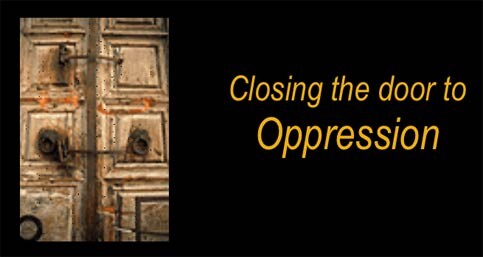
“Where is the world? Is it dead?” exclaimed the bereaved mother in Rafah on Al-Jazeera. Before her lay the lifeless body of her little child.
Faced with overwhelming Israeli oppression, Palestinians under occupation, in refugee camps and in the heart of Israel’s distinct form of apartheid have increasingly reached out to the world for understanding, for compassion, and, more importantly, for solidarity. Palestinians do not beg for sympathy. We deeply resent patronization, for we are no longer a nation of hapless victims. We are resisting racial and colonial oppression, aspiring to attain justice and genuine peace. Above all, we are struggling for the universal principle of equal humanity.
But we cannot do it alone. We need international support.
The question of Palestine was created by the world — mostly the western part of it — and it is the world that must rise to its moral responsibility to resolve it. The renowned French philosopher Etienne Balibar captures this exceptional feature saying that the Palestinian cause is a “universal” one because “it is a test for the recognition of right, and the implementation of international law.”[1] Indeed, in few other causes in modern history has the fundamental primacy of the rule of law and moral principles been put to such a fatal challenge.
Given its uncontested military superiority, the unquestioning and all-embracing support it enjoys from the world’s only empire and the lack of political will by Arab and European states to hold it in check, Israel has been gravely violating international law, with audacious impunity, showing little if any consideration for the UN or world public opinion. Only consistent, systematic and broad international pressures can help end Israel’s oppression and injustice, through ascertaining its status as a pariah state.
This article focuses on the ethical dimension of boycott, a tactic which I regard not only as a justified form of international intervention, but an imperative one as well. More specifically, academic and cultural boycott is examined, due to its evidently controversial nature.
The Palestinian call for academic and cultural boycott of Israel [2] is specifically premised upon Israel’s systematic and ongoing oppression of the Palestinian people which takes three basic forms:
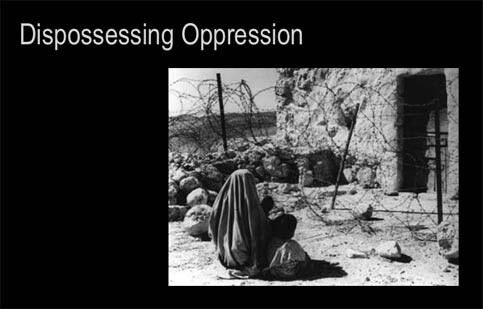
First: Israel’s rejection of the Palestinian refugees’ right of return to their lands and properties, as stipulated in international law, and denying any responsibility for the Nakba — the massive dispossession and ethnic cleansing campaign carried out by Zionists around 1948, transforming close to 800,000 Palestinians into refugees. A virtual consensus exists among Israelis, including academics and other intellectuals, on rejecting the legally and morally binding rights of Palestinian refugees.[3]
The most peculiar dimension in the popular and academic Israeli discourses on the creation of the state is substituting the concept of “independence” for colonization and birth for destruction. Even committed “leftists” often grieve over the loss of Israel’s “moral superiority” after occupying the West Bank and Gaza in 1967, as if prior to that Israel were as civil, legitimate and law-abiding as Finland! Ironically, while stubbornly rejecting Palestinian refugee rights, Israeli academics have played a central role in the massive campaigns demanding, and often winning, restitution, repatriation and compensation rights for Jewish refugees of the World War II era.
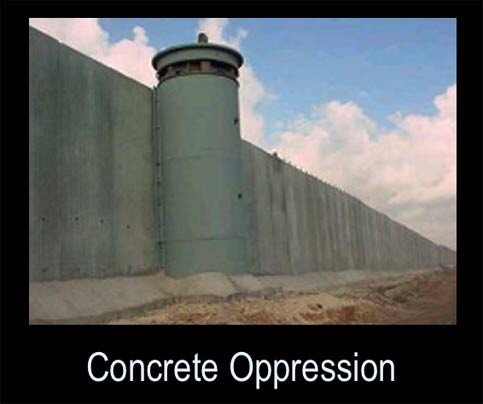
Second: the military colonization of the West Bank and Gaza Strip since 1967, with all what it entails in land expropriations, house demolitions, indiscriminate killings, and, most ominously, the colonial wall — declared illegal by the International Court of Justice (ICJ) in July of this year — which serves to facilitate Israel’s unremitting land grab and gradual ethnic cleansing of Palestinians.[4] Israeli universities — all government controlled — have not only been complicit in planning, maintaining and furnishing the justification for various aspects of the occupation, but have also directly participated in acts of colonization. Besides the voluminous record of individual acts of collusion by Israeli academics, the academic institutions themselves have never refrained from committing colonial crimes themselves.
The Hebrew University has been slowly but consistently expropriating lands and expelling their Palestinian owners in occupied East Jerusalem.
Tel Aviv University (TAU) refuses to date to acknowledge the fact that it sits on top of an ethnically cleansed Palestinian village.[5] Some of TAU’s departments are also organically linked to the military and intelligence establishment.
Bar Ilan University not only operates a campus on the illegal colony of Ariel near Nablus, but has also awarded Ariel Sharon an honorary doctorate for his role in the March 2002 reoccupation of Palestinian cities, which witnessed atrocities in Jenin and Nablus as well as wanton destruction and indiscriminate killings in all the major Palestinian cities and refugee camps in the West Bank.
Ben Gurion University has supported in various ways the slow ethnic cleansing of the Palestinian Bedouins in the Negev or has witnessed in condemning silence the decades-old policy of racial discrimination prevailing there. In one glaring example, its scholars conducted from 1995 to 2000 a confidential study [6] commissioned by the Health Ministry on the high incidence rate of severe birth defects and cancer among Palestinian Bedouins living near a polluting Israeli industrial site. Although the researchers established a clear correlation between the industrial pollutants and the mortality rate of the Palestinian citizens in the area — “65% higher than among equivalent communities in Israel” — as well as their cancer rate — “double the national average” — the findings were kept secret in accordance with the academics’ agreement with the ministry. It was only recently leaked to the press, by chance.
Haifa University boasts one of the most racist academics in Israel: Prof. Arnon Sofer, the infamous “prophet of the Arab demographic threat,” who relentlessly and influentially provides academic justification for ethnically cleansing Palestinians — including citizens of Israel — in innovative shapes and forms.[7] Moreover, the University has itself sponsored a wide campaign attempting to cover up a Zionist massacre in the Palestinian village of Tantura, near Haifa, during the Nakba, and went through motions to fire, discredit or silence Prof. Ilan Pappe and one of his students for daring to reveal the facts about this massacre.
It is perhaps common knowledge now that the Palestinians have suffered grave human losses due to Israel’s 37-year-old occupation. But what seems to escape the mainstream opinion makers is that during the current intifada, the Israeli army has crossed many of its former red lines, committing crimes that are reminiscent in form — though certainly not in scale — of Nazi crimes against European Jews, as British MP Oona King had once stated.[8] And the Israeli army accurately represents and is supported by Israeli society at large, mainly due to the fact that the IDF is still, relatively speaking, a people’s army.[9]
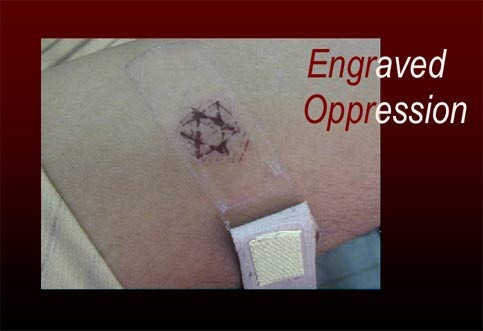
From forcing a Palestinian violinist to play at a military roadblock near Nablus [10], to executing a 13-year-old refugee girl in Rafah in cold blood,[11] to engraving the Star of David on the arms of teenage Palestinian boys, to inscribing ID numbers on the foreheads and forearms of Palestinians, young and old,[12] Israel has acted with nauseating criminality and shocking impunity. Despite all this, Israeli academics and intellectuals who have explicitly called for an end to the occupation have remained in a depressingly tiny minority. Moreover, no Israeli academic body or professional union has to date publicly called for an end to occupation and the other forms of Israeli oppression. If this does not define complicity, what does?
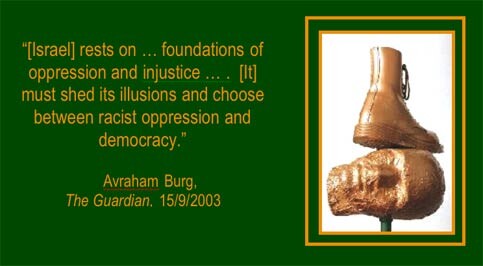
Third: The third form of Israeli oppression is hardly ever mentioned in the western media or in academia: the system of racial discrimination against Palestinian-Arabs [13] who are officially “citizens” of Israel, a state which categorically precludes them from its self-definition and severely punishes them when they eventually shout “j’accuse!”. The entire state apparatus, including the education system, is designed to keep Palestinian-Arab citizens of Israel disempowered, largely dispossessed and lacking equal status in the laws and practices of the state. Moreover, despite being the natives, the indigenous population of the land, or perhaps because of it, they are increasingly being viewed by the Israeli Jewish settler majority as unwanted, or, worse, as a demographic threat that ought to be dealt with, resolutely. Polls have steadily shown that a solid majority of two thirds of all Israeli Jews supports “encouraging the Arabs to leave” by various means.[14]
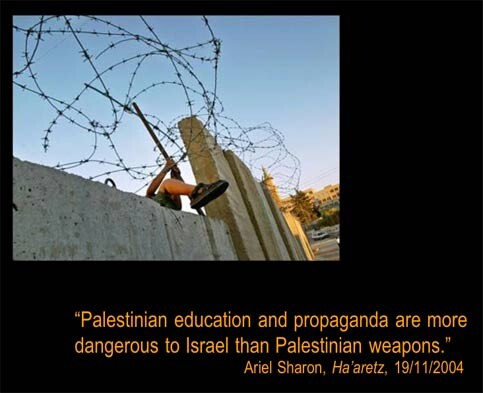
In every vital aspect of life, from land ownership to access to higher education and jobs, Israel has for been practicing its own form of apartheid for 56 years. Of all the areas of racial discrimination, education stands out. A ground-breaking Human Rights Watch study published in 2001 concludes:
“The hurdles Palestinian Arab students face from kindergarten to university function like a series of sieves with sequentially finer holes. At each stage, the education system filters out a higher proportion of Palestinian Arab students than Jewish students. … . And Israel’s courts have yet to use … laws or more general principles of equality to protect Palestinian Arab children from discrimination in education.” [15]
Despite the above, I agree with those who argue that Israel is not identical to South Africa; that it is more complex, more multi-dimensional and even more sinister, in some respect. But, no matter how we define Israel, the fundamental and undisputed existence in it of a system of racial discrimination based on religious/ethnic identity is what motivates calls for South Africa-like sanctions against Israel. “Apartheid,” “Zionist settler-colonialism,” “Jewish supremacy,” …etc. are all variations on the name of the ailment. What matters is how best to cure it. Taking into consideration all 3 dimensions of Israel’s oppression mentioned above, it can be concluded that a sufficient family resemblance between Israel and South Africa exists to grant advocating South Africa style remedies.
Some distinguished supporters of the Palestinian cause [16] have argued against applying South-Africa style sanctions and boycotts to Israel for various reasons, most significant of which are:
Some infamous cases are worth mentioning here for illumination: Israel’s most celebrated philosopher, Asa Kasher, provided “ethical” justification for extra-judicial killings, even when a large number of innocent civilians are deliberately killed or injured in the process.[19]
Israel’s foremost military historian, Martin Van Creveld, of Hebrew University, advised the Israeli army in 2002 [20] — in the Jerusalem regional weekly, March 1, 2004 — to commit swift genocide against the Palestinians, explaining that, “Perhaps 5.000 or 10.000 killed won’t be enough, and then we will have to kill more.” He concludes by saying, “it is better that there be one massive crime, after which we will exit and lock the gate behind us.” Like any proper peacenik, his ultimate objective remains to “exit” the occupied territories.
Benny Morris has recently argued that completely emptying Palestine of its indigenous Arab inhabitants in 1948 might have led to peace in the Middle East.[21] In response, Baruch Kimmerling, professor at Hebrew University, wrote: “Let me extend Benny Morris’s logic …. If the Nazi programme for the final solution of the Jewish problem had been complete, for sure there would be peace today in Palestine.”[22]
Far from being isolated examples, such explicitly racist and criminal positions are quite popular in Israel today. They are not only condoned in universities, but highly praised, judging from the prominent stature enjoyed by Kasher, Van Creveld, Morris and their ilk.
From a slightly different perspective, some academics have argued that boycotting Israel is counterproductive and may lead to:
Some sincere advocates of Palestinian rights have argued that boycotting Israel is a self-righteous act that ignores the pressing need to alleviate the immediate suffering of Palestinians under occupation. But, as I have argued elsewhere,[25] regardless of all intentions, this type of logic is not only patronizing — claiming to better know what’s best for Palestinians — but also based on an unconscious premise that Palestinians have somewhat less than normal human needs. Implied in it is the supposition that food, shelter and basic services — which would be better served without boycott, the argument claims — are considered by Palestinians to be more profound or dear than their need for freedom, justice, self-determination, dignified living and the opportunity to develop culturally, economically and socially in peace.
From an entirely different angle, some argue that, in spite of all the above, it is still necessary for Palestinian academics and intellectuals of all people to maintain and foster open communication channels with their Israeli counterparts, to debate, to share, to convince, to learn, to overcome the “psychological barriers” and ultimately to reach a common vision and a common struggle for peace.
I beg to differ. Those who imagine they can wish away the conflict by suggesting some forums for rapprochement, detente, or “dialogue” — which they hope can lead to authentic processes of reconciliation and eventually peace — are either clinically delusional or dangerously deceptive.
First, given the financial luring and political arm-twisting that typically come as part of the package of western “suggestions” for collaboration, the latter are more often than not perceived as outright dictates.
Second, any sincere joint projects aimed at reaching a just peace must be fundamentally based on rejection of all oppression and recognition of equal humanity. Prior to establishing equal humanity any communication is strictly an exercise in asymmetrical negotiations between oppressor and oppressed. Only after equality is established can such communication rise to the level of dialogue. The mutual recognition of equal humanity is therefore a fundamental precondition for, never a consequence of dialogue. As the late Edward Said used to say: “Equality or nothing!”
Third, if a member of the oppressors’ community theoretically accepts — on principle — the requirements for justice without acting to attain them, while simultaneously enjoying the benefits brought about by occupation, racial discrimination and the illegal use of Palestinian refugees’ properties, then he/she would still be indirectly responsible, and ethically accountable for the injustice his/her state is committing. Reflection without action cannot suffice to exonerate a member of an oppressive group. Action is needed to translate the formal commitment into a process for change and ethical transformation.
Israelis who always ask the Palestinians for a political price to be paid in advance in return for their “noble” recognition of a meager subset of Palestinian rights are not really seeking justice or a moral end to the conflict. Some shamelessly seek European funds; others do it for prestige or fame; and some even participate in this typical colonial behavior as a form of taming the Palestinian shrew, or inhibiting resistance to oppression.
Striving for peace divorced from justice is as good as institutionalizing injustice, or making the oppressed submit to the overwhelming force of the oppressor and accept inequality as fate.
Those who attempt to change the perception of the oppressed rather than help end oppression itself are guilty of moral blindness and political short-sightedness. Prolonging oppression is not only unethical, it is pragmatically counter-productive as well, as it perpetuates the conflict.
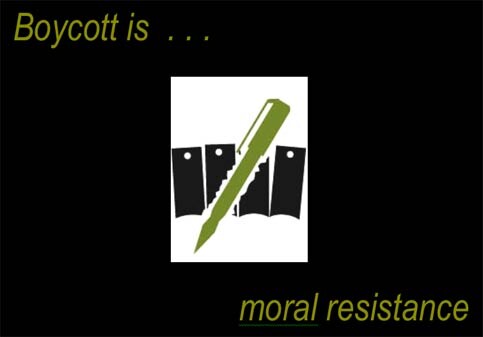
In conclusion, I wish to emphasize the necessity of applying an evolving, comprehensive, institutional boycott against Israel’s academic, cultural, economic and political organizations. Without principled and effective support for this minimal, non-violent form of resistance to oppression, intellectuals and academics will be abandoning their moral obligation to stand up for right, for justice, for equality and for a chance to establish the primacy of universal ethical principles.
Omar Barghouti is an independent Palestinian researcher. A shorter version of this article was presented before the “Resisting Israeli Apartheid” Conference at the University of London (SOAS), on December 5, 2004.
Endnotes
1. Etienne Balibar, A Complex Urgent Universal Political Cause, Address before the conference of Faculty for Israeli-Palestinian Peace (FFIPP), Universite Libre de Bruxelles, July 3rd and 4th.
2. The Palestinian call for boycott, issued by the Palestinian Campaign for the Academic and Cultural Boycott of Israel (PACBI), and supported by close to 60 of the most important professional, educational and cultural unions and organizations in the occupied Palestinian territories, can be read at: right2edu.birzeit.edu/news/article178
3. “The Palestinian leadership would be well advised to take very seriously the united front in Israel that opposes a right of return,” read the lead editorial in Ha’aretz, August 18, 2003.
4. According to peace activists Gadi Algazi and Azmi Bdeir: “Transfer [Israeli euphemism for ethnic cleansing—OB] isn’t necessarily a dramatic moment, a moment when people are expelled and flee their towns or villages. It is not necessarily a planned and well-organized move with buses and trucks loaded with people … . Transfer is a deeper process, a creeping process that is hidden from view. … The main component of the process is the gradual undermining of the infrastructure of the civilian Palestinian population’s lives in the territories: its continuing strangulation under closures and sieges that prevent people from getting to work or school, from receiving medical services, and from allowing the passage of water trucks and ambulances, which sends the Palestinians back to the age of donkey and cart. Taken together, these measures undermine the hold of the Palestinian population on its land.” Cited in: Ran HaCohen, Ethnic Cleansing: Past, Present, and Future, www.Antiwar.com, December 30, 2002.
5. The Palestinian village’s name is Sheikh Muwannis.
6. Ran Reznick, Ramat Hovav has double number of birth defects and cancer, Ha’aretz, June 1, 2004.
7. One example is the “Mitzpim Project,” supervised by Sofer, which calls for the “conquest” of areas populated by Palestinian-Arabs inside via Jews-only settlements and roads. haaretz.com/hasen/spages/481680.html
8. Following a visit to the completely fenced Gaza Strip, Oona King, a Jewish member of the British parliament commented on the irony that Israeli Jews face today, saying: “…in escaping the ashes of the Holocaust, they have incarcerated another people in a hell similar in its nature - though not its extent - to the Warsaw ghetto.” Israel Can Halt This Now, The Guardian, June 12, 2003. guardian.co.uk/comment/story/0,3604,975423,00.html
9. According to surveys of Jewish-Israeli views on conscription, the primary factor indicating support for the continuation of the “people’s army” heritage, a solid majority favours it. For example, refer to the authoritative April 2001 Peace Index poll conducted by Tel Aviv University at: tau.ac.il/peace/Peace_Index/2001/English/p_april_01_e.html
10. Chris McGreal, Israel Shocked by image of soldiers forcing violinist to play at roadblock, The Guardian, November 29, 2004. guardian.co.uk/israel/Story/0,2763,1361755,00.html
11. Amos Harel, Absolutely Illegal, Ha’aretz, 23/11/2004. haaretz.com/hasen/spages/504878.html
12. Serge Schmemann, At Least 17 Are Killed in Israeli Raid at Palestinian Camp in Gaza, New York Times, 12/3/2002.
13. According to Physicians for Human Rights-Israel, “Although the Palestinian citizens of the State of Israel represent approximately 20% of its population, this community suffers from institutionalized discrimination that produces severe socio-economic gaps between the Jewish majority and the Arab minority. No significant investments are made to eliminate these gaps. On the contrary, the Arab population continues to suffer from under-budgeting and discrimination in many areas including employment, education, property and planning policies, and health care services.” phr.org.il/Phr/Pages/PhrArticle_Unit.asp?Cat=37&Pcat=4
14. Yulie Khromchenco , Poll: 64% of Israeli Jews support encouraging Arabs to leave, Ha’aretz, June 22, 2004.
15. Human Rights Watch, Second Class: Discrimination Against Palestinian Arab Children in Israel’s Schools, September 2001. hrw.org/reports/2001/israel2
16. Noam Chomsky, for instance, describes sanctions as “probably harmful and at best pointless,” arguing that, “In the current real-world circumstances, a call for sanctions, even if it were justified, would be greatly welcomed by the right wing extremists and hard-liners, because they could easily convert it into another ‘proof’ that everyone wants to kill the Jews and so we must rise to the support of embattled Israel to prevent another Holocaust.” ZNet, May 31, 2004. http://blog.zmag.org/ttt/archives/000492.html
17. Etienne Balibar, ibid.
18. Tony Judt, Israel: The Alternative, New York Review of Books, Vol. 50, #16, October 23, 2003. nybooks.com/articles/16671
19. Reuven Pedatzur, The Israeli army’s house philosopher, Ha’aretz, February 24, 2004.
20. Ran Hacohen, Against Negotiations, Antiwar.com, March 28, 2002. antiwar.com/hacohen/h032802.html
21. Benny Morris, A new exodus for the Middle East, The Guardian, October 3, 2002. guardian.co.uk/israel/comment/0,10551,803417,00.html
22. Baruch Kimmerling, False logic, The Guardian, October 5, 2002. guardian.co.uk/letters/story/0,3604,805123,00.html
23. Desmond Tutu, Apartheid in the Holy Land, The Guardian, April 29, 2002. guardian.co.uk/israel/comment/0,10551,706911,00.html
24. Desmond Tutu, Of Occupation and Apartheid Do I Divest?, CounterPunch, October 17, 2002.
25. See “On Refugees, Creativity and Ethics,” ZNet, September 28, 2002. zmag.org/content/Mideast/bhargoutirefeth.cfm



